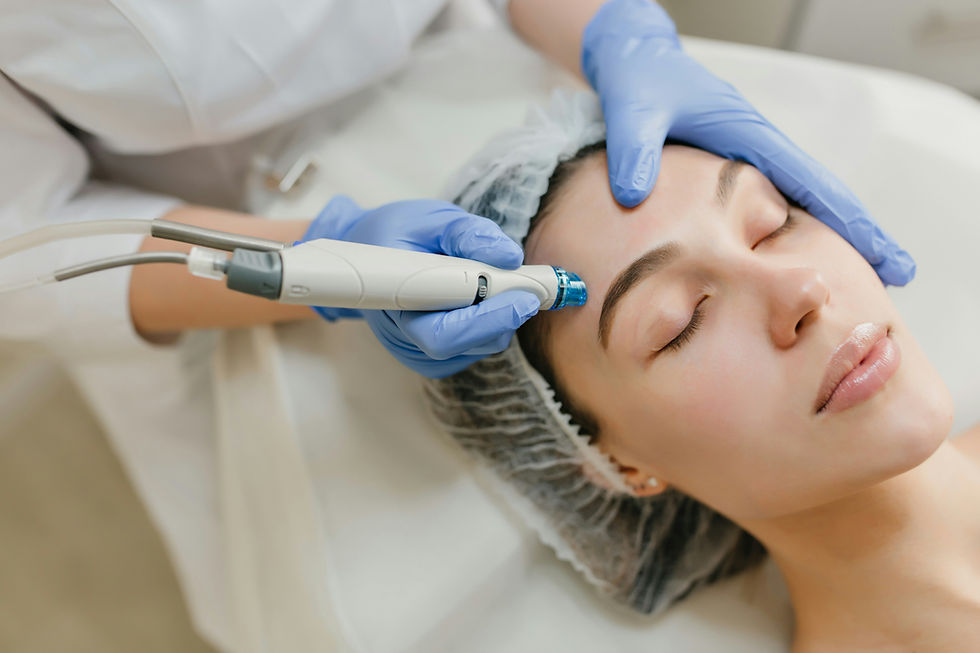Why Dental Cleanings Are Essential
- anikapearlnecosia
- Nov 24, 2022
- 3 min read

A dental cleaning from Calgary Teeth Whitening is important to your overall health. This is because the bacteria that collect on your teeth are the leading cause of tooth decay. In addition, plaque can irritate the gum line and is the main cause of bad breath.
Plaque is The leading Cause of Tooth Decay.
Getting regular dental cleanings is a great way to avoid cavities. Dental cleanings remove plaque from teeth and polish them to a brighter shine. This helps to prevent tooth decay, bad breath and other dental problems.
Plaque is a sticky, colourless film formed by bacteria in your mouth. The bacteria then produce acids that dissolve the enamel of your teeth. Unfortunately, these acids also damage the roots of your teeth. If left untreated, plaque can cause gum disease and tooth loss.
Plaque can also be removed through regular brushing and flossing after meals. However, it can harden into tartar, which is harder to remove. If tartar is left on your teeth for long periods, you may have to see your dentist. It is best to brush your teeth twice a day. Use a soft-bristled toothbrush. Also, floss daily. Avoid eating sugary foods and drinking sugar-sweetened beverages. If you do consume these products, rinse your mouth with fluoridated water.
Plaque Irritates The Gum Line
During a dental cleaning, the dentist removes plaque and tartar buildup from the gum line. These two substances can be tough to remove and cause gums inflammation. They also irritate the gum tissue and make the gums bleed.
In some cases, dentists will also recommend special mouthwashes or antibiotics to help control the infection. These medications can help the gums heal faster.
Periodontal disease is caused by bacterial plaque. The plaque forms a thick biofilm that allows pathogenic bacteria to flourish. The bacteria feed on the food particles that get stuck in the plaque. As the bacterial plaque builds up, the bacteria create acids that damage the teeth and gums.
The bacteria also irritate the gums, which causes the gums to bleed. This can result in recession, loose teeth, and pain. In addition, the infection can sometimes spread to the jaw bone and bloodstream.
Getting regular dental cleanings will help prevent the spread of gum disease. During a professional cleaning, the dentist will use special instruments to remove plaque from the teeth. The dentist will also check for any abnormalities in the gums.
Plaque Contributes to Gum Disease
Getting professional cleaning is important for dental health. This is because plaque can cause cavities and gum disease. It can also break down the bone that supports your teeth.
Plaque is a sticky film that forms on your teeth. It contains bacteria that feed on carbohydrates and sugars. Unfortunately, these bacteria also produce acids, damaging your teeth's enamel. If left untreated, plaque can lead to gum disease and periodontitis.
A periodontal probe can help identify whether your gums are infected. You may need to see a dentist for deep cleaning if they are. You may also need an antibacterial mouthwash to help remove plaque and food debris. You may also be prescribed antibiotics to help fight off the infection.
Periodontitis is a progressive condition that affects the gums and jawbone. This gum disease is caused by bacteria, which cause inflammation in the gum tissue. As a result, the gums become red, swollen, and tender. You may also experience bleeding. In addition, you may develop tooth decay, loose teeth, or a receding gum line.
Plaque can Resolve Persistent Bad Breath.
Getting rid of persistent bad breath requires removing the plaque causing the odour. Plaque is a film of bacteria that forms on your teeth and gums. It's a common cause of bad breath and can lead to cavities and gum disease. Brushing your teeth and flossing can prevent plaque from building up.
A persistent bad breath could be a sign of gum disease, a sinus infection, or even a respiratory infection. If your breath doesn't improve after you brush and floss, it's time to visit a dentist. They can perform dental cleanings, check for cavities, and even treat gum disease.
If you're brushing your teeth daily and flossing regularly, but your breath persists, it's time to see a dentist. Your dentist can diagnose the cause of your bad breath and suggest the best way to treat it.
In addition to brushing and flossing, your dentist can recommend antibacterial mouthwash. These mouth rinses will kill the bacteria that cause bad breath. You should also avoid sugary foods and beverages.



Comments